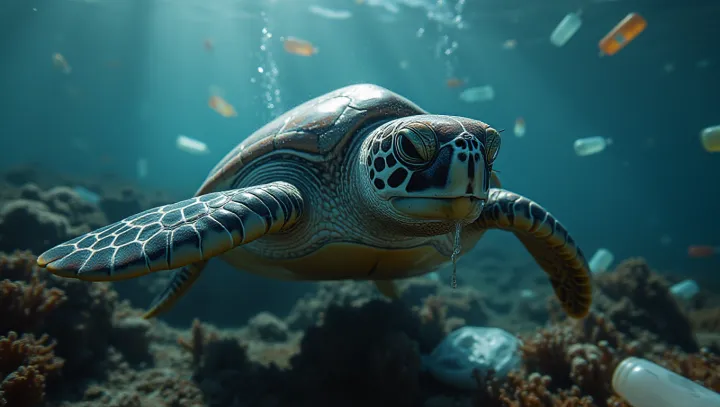Plastic Waste: A Crisis Under the Sea

In the depths of oceans around the world, plastic waste is accumulating at an unprecedented rate, posing a significant threat to marine life. Recent reports from environmental agencies have highlighted the grave situation, bringing to light that over eight million metric tonnes of plastic enter the ocean annually. The harmful impact of this pollution is profound.
Marine animals, including fish, turtles, and seabirds, often mistake small plastic particles for food, leading to ingestion. This not only causes internal blockages and starvation but also transfers toxic substances through the food chain, impacting human consumers. In locations such as the Pacific Ocean's Great Garbage Patch, plastics have severely disrupted marine ecosystems.
Dr. Emily Harrison from Ocean Conservancy notes, 'The scale of plastic waste in our oceans is nothing short of catastrophic. It threatens not only marine species but also the overall health of our planet.' Addressing this issue demands immediate global cooperation and proactive measures.
Governments, corporations, and individuals must collaborate to reduce plastic production and promote sustainable waste management practices. Collective action is crucial to preserving marine biodiversity and ensuring a sustainable future for our oceans.
